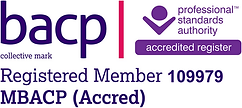Have you ever stopped to consider the power of words? How the words you use – whether out loud or in your own head – shape the way you feel? The connection between our thoughts, emotions, and behaviours is well-documented, but what often gets overlooked is how much our vocabulary influences this cycle.
The Stories We Tell Ourselves
Our internal narrative, or self-talk, has a profound impact on how we see ourselves and the world around us. Consider this: Are you someone who frequently apologises, even when you’ve done nothing wrong? Maybe you’ve found yourself saying sorry to the person who bumped into you at the supermarket. Or perhaps you’ve prefixed your sentences with phrases like, “I know this might sound stupid” or “I know I’m being silly, but…”
These seemingly harmless habits can chip away at your self-esteem over time. When you’re constantly apologising, you’re essentially telling yourself that you’re at fault, even when you’re not. And when you preface your thoughts with self-deprecating language, you’re reinforcing the belief that your ideas and feelings aren’t valid or worthwhile.
The Trap of “Should” and “Shouldn’t”
Then there are the “should’s” and “shouldn’t’s” that creep into our vocabulary. “I should be doing this.” “I shouldn’t feel that way.” The power of words is evidenced in these phrases carry an air of obligation and judgment, often rooted in outdated rules or expectations we’ve internalised from our upbringing.
How often do you stop to question these rules? Many of them stem from messages you absorbed as a child from parents, teachers, or society at large. As an adult, you have the power to reframe these thoughts. Instead of saying, “I need to…” try saying, “I want to…” This subtle shift can make a huge difference in how you approach your tasks and decisions, freeing you from unnecessary pressure and guilt.
Why Words Matter
Words are more than just tools for communication; they’re a reflection of our mindset. Research has shown that positive self-talk can improve mental health, increase resilience, and even enhance performance. Conversely, negative or limiting language can contribute to stress, anxiety, and a diminished sense of self-worth.
For example, studies in cognitive behavioural therapy (CBT) emphasise the power of reframing negative thoughts. By changing how you describe a situation, you can change how you feel about it. Instead of saying, “I failed at this,” try, “I’m learning from this experience.” It’s not just semantics – it’s a shift in perspective that can lead to meaningful emotional growth.
Simple Changes, Big Impact
Here are a few ways you can start shifting your vocabulary to support your emotional wellbeing:
- Swap Apologies for Gratitude: Instead of saying, “Sorry I’m late,” try saying, “Thank you for waiting for me.” This small change flips the focus from guilt to appreciation.
- Challenge Self-Deprecation: When you catch yourself saying things like, “This might sound stupid,” pause and reframe. What if you said, “Here’s an idea I’d like to share” instead?
- Reframe Obligations: Replace “I should” with “I choose to” or “I’d like to.” This puts the power back in your hands and helps you prioritise what truly matters to you.
- Practice Affirmations: Introduce positive affirmations into your daily routine. Simple statements like, “I am capable,” or “I deserve kindness,” can help rewire your brain for positivity over time.
Remember:
The words we use, both internally and externally, are more than just expressions – they’re a mirror of our beliefs and a blueprint for our actions. By being mindful of your vocabulary and making intentional changes, you can foster greater emotional wellbeing and self-confidence. It’s not about silencing your inner critic entirely – it’s about teaching it a kinder, more supportive language.
So, the next time you find yourself apologising unnecessarily or falling into the trap of “should,” think about the power of your words and take a moment to pause and rethink what you saying. You might be surprised at how much of a difference it makes.






